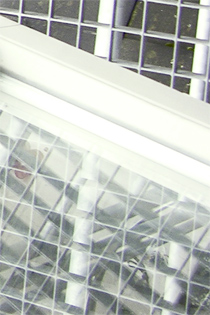Les exemples du Vercors et du massif des Bauges.
Clémence Perrin-Malterre et Jean-Pierre Mounet | 14.09.2009
The goal of this study is to understand how the canyoneering activity is organized in the regional natural parks of Vercors and of the massif of Bauges. To analyze this organization, the concepts developed by Friedberg for the analysis of organized action are used. We also want to question the relevance of the theory. Results highlight that the various contexts of action are not organized in the same way. There is a coexistence of more or less structured systems, [...]
José Luis Moreno Pestaña | 01.09.2009
In this text I shall analyze the career of three Spanish intellectuals (Juan Carlos García-Borrón, Esteban Pinilla de las Heras, and Manuel Sacristán Luzón) from their autobiographic stories, with the aim of developing a sociology of intellectual failure. In order to analyze the different forms of failure in their narratives I shall distinguish between three poles of intellectual excellence: institutional reputation, intellectual reputation, and creative autonomy. So, with the experience of failure as a guide, I shall try to [...]
Une icône neuropsychologique ?
Mathieu Arminjon | 20.07.2009
Penfield’s homunculus embodies the motor and sensitive body as it is represented by the brain from corporeal afferences. Beyond its epistemological limits, it is still fascinating. Indeed modern science does not usually rely on artistic means to present its data. Medical iconography has soon seen in it the return of the “monstrous”, typifying classic-age psychiatry. Our aim is to propose an alternative reading. Through its own epistemic benefits and limits, the homunculus could attest of the contamination of neurology [...]
La composante de l’identité sexuelle dans les enquêtes sur les processus de reconnaissance institutionnelle de l’homosexualité.
Marta Roca i Escoda | 24.06.2009
This paper outlines some reflections and embarrassments which occurred during my PhD work with regard to the issue of confidentiality. More precisely, it concerns revelation of information that can be considered as an infringement on the “privacy” of some high-ranking leaders in the political and administrative fields. It deals with the arbitrations regarding the privacy of some people which I was confronted with as a social scientist while doing the fieldwork and writing my PhD thesis dealing with the [...]
Et les paradoxes du postcolonialisme.
François Warin | 22.06.2009
« L’Occident est maintenant partout, en Occident et ailleurs, dans les structures et dans les esprits. »Ashis Nandy, L’ennemi intime « Tout est venu à l’Europe et tout en est venu. »Paul Valéry, La crise de l’esprit Contraste. Le vocable de postcolonialisme est équivoque et il est chez nous, il faut bien l’avouer, quasiment muet. [...]
Jacques Lucan, Jacques Lucan, Composition, non-composition. Architecture et théories, XIXe-XXe siècles, Presses polytechniques et universitaires romandes (PPUR), 2009.
Jacques Lucan | 17.06.2009
Retour à Pise. Pour comprendre ce qu’il en est, pour Le Corbusier, de la liberté de ce qu’il appelle des organes, il faut aller avec lui à Pise. Il faut donc revenir en arrière et suivre Jeanneret lorsqu’il avait entrepris, en septembre 1907, un voyage en Italie, premier périple important, quatre ans avant son « [...]
Le papier ne peut pas envelopper la braise (2007).
Soko Phay-Vakalis | 09.03.2009
Devant l’actualité brûlante que connaît le Cambodge avec l’ouverture des procès des anciens Khmers rouges, en premier lieu avec celui de Douch (anciennement directeur de S21), en ce 17 février 2009, les films et documentaires de Rithy Panh apparaissent essentiels dans la compréhension et l’appropriation de notre passé. En effet, ce crime de masse ― [...]
Libero Zuppiroli et Marie-Noëlle Bussac, Traité de la lumière, Presses polytechniques et universitaires romandes (PPUR), 2009.
Libero Zuppiroli et Marie-Noëlle Bussac | 02.03.2009
L’avatar de la lumière qui se révèle dans ce chapitre est à la fois le plus concret, puisque c’est dans son interaction avec la matière que la lumière acquiert tout son éclat, et le plus mystérieux, car, après vingt-cinq siècles de recherches, seules les théories un peu difficiles du 20e siècle ont pu en éclairer [...]
Ethnographie des rapports au passé dans une communauté de bavardage électronique.
Madeleine Pastinelli | 19.02.2009
Drawing on fieldwork carried out in an Internet chat room visited for many years by French Canadian adults, this ethnographic study gives an account of the relationship, both individual and collective, to memory and archive in a context defined by a technology that allows the systematic recording and conservation of all interaction. The study shows that, while it appears necessary for everyone involved to produce traces of one’s “electronic” daily life and to keep a record of one’s interaction [...]
Manuel Castells | 20.01.2009
Illustration : Jérôme Chenal, « Vue sur Tokyo», Tokyo, 2003. L’objet de cet article est de traiter de la transition vers de nouvelles formes d’organisation économiques et culturelles, impliquant des transformations spatiales, et liées à un changement technologique profond, au cours des vingt dernières années. Je le ferai dans une perspective comparée et dans une [...]


